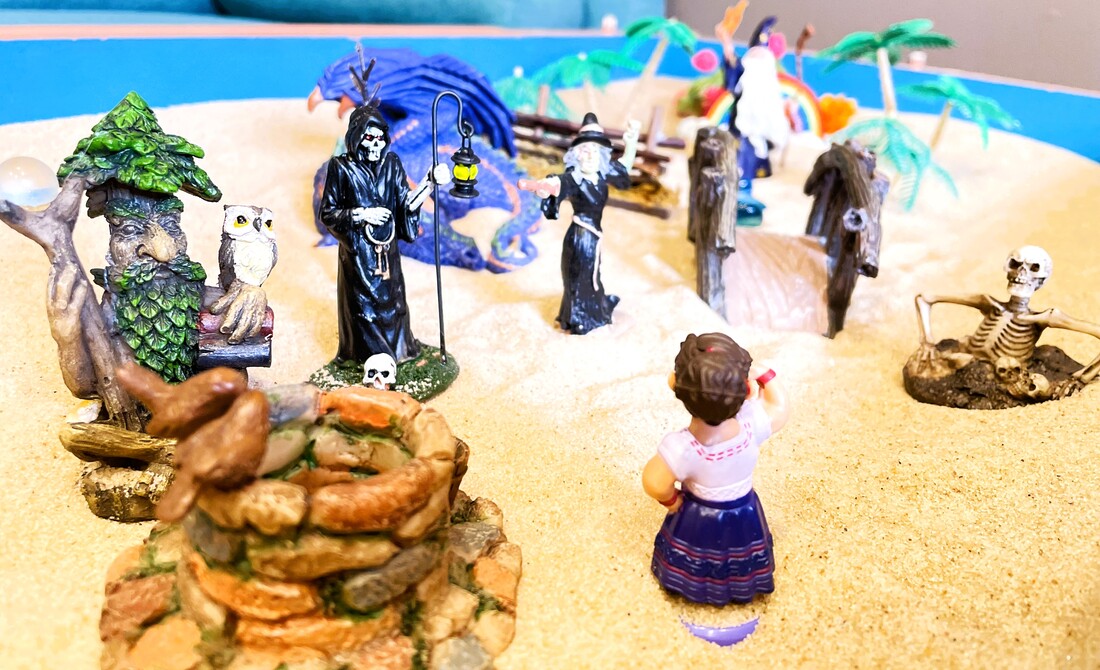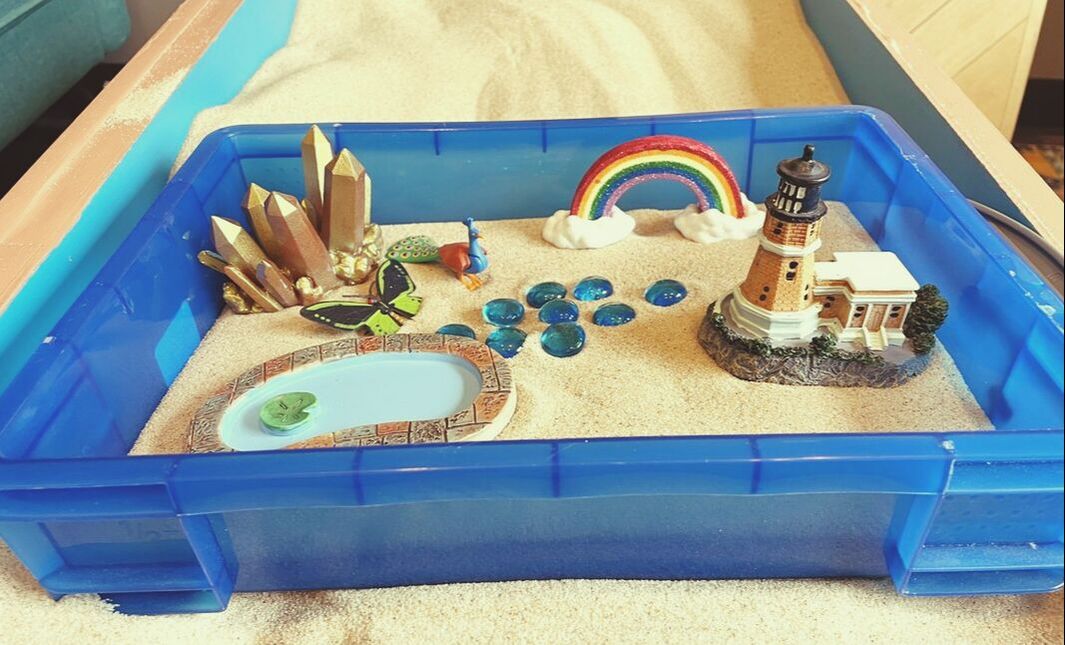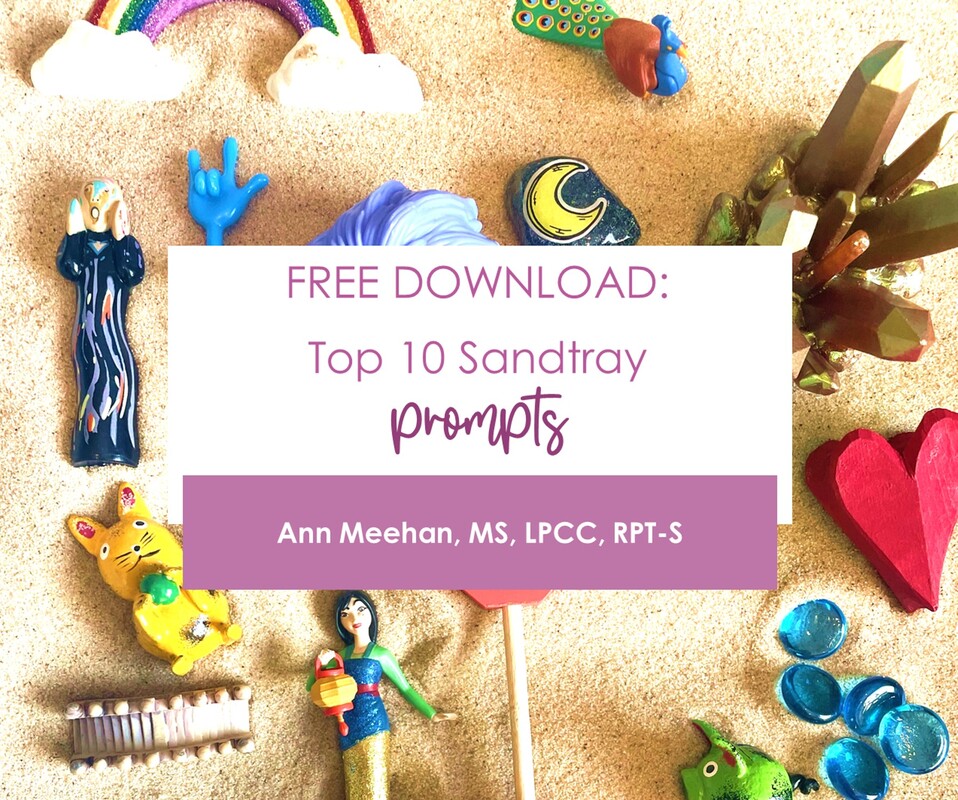|
Have you ever had one of these sessions?
A child gets out one of your dollhouses followed by all the furniture, people, characters, and accessories. As the next 45 minutes tick by they spend the entire session setting up everything. The beds, the bathroom, the living room, the kitchen and all the accessories. Then it’s rearranging so everything is just perfect.
1 Comment
Why This Wasn't What Everyone Thought It Was: When Interpreting Play Themes, Context Is Key5/8/2024
Picture this.
You are at a birthday party for a bunch of five year olds. Of course the setting is somewhere that supports big motor skills of running, jumping, and playing! And then? It’s finally time to eat pizza and cut the cake. And juuuust as everyone is sitting down to eat you hear one of the kids start singing “Bad boys, bad boys whatcha gonna do? Whatcha gonna do when they come for you?”
I want to blow the lid off of this one sandtray myth: Sandtrays need to be still.
Yup! When I first started doing work in Sandtray at the beginning of my career I felt like if the tray and figures weren’t perfectly set up, and still, just like I saw in all the trainings, demos, and text books that it wasn’t a legitimate Sandtray.
If you work with kids, you absolutely work with trauma. Trauma comes in all forms and can have profound impacts on a child’s wellbeing, sense of self, connection with the world, and everyday functioning. So, it’s no surprise that most therapists are looking for ways to heal trauma with the therapeutic powers of play!
And at the same time, you are likely asking yourself - is this too fast? Too much? Is the child ready for this kind of work? Am I pushing them too far?
A sandtray without miniatures? How would that even be possible? Helpful? Effective?
Isn’t “just playing with the sand” avoiding the real work of sandtray?
Are you having figure paralysis? In this post here I offered 1,000+ ideas for miniatures you could use in your sandtray.
Sometimes when you are starting your collection it can feel like too much or like you’re never going to make it where you have “all the figures”. And the good news? You will never have everything!
So I actually did spend hours on Amazon curating this list of my top fav miniatures for sandtray - all so you don’t have to! This is the best-of-the-best sandtray miniature list all with the clickable links!
I made this list to reflect much of my own sandtray collection with the variety and diversity of objects and miniatures! This master list is the tried and true (and much loved) sandtray miniatures that get most used in my office - all in one place!
How many sandtrays are too many?
From standard size trays, to smaller trays, virtual trays, person shaped, heart shaped, or circle PLUS with all different shades and varieties of sand the sky is the limit! And with playroom space being a priceless commodity, most play therapists don’t have a full room or endless space to dedicate to the sand tray setup.
Once all the figures are placed in the tray, what next? What do you say? How do you go deeper?
Whether the tray has three objects or feels like a crowded dance party with no empty space to fit anything else in the tray, deciding what to focus on and how to go deeper can feel overwhelming.
Real talk? My absolutely favorite sand tray prompt is vanilla. The most basic of the basic.
What is it? Well, it’s… “Create a world”. |
Hi, there!I'm Ann Meehan, an LPCC, Loading... Archives
July 2024
Categories
All
|
Privacy Policies | Terms of Use | Disclaimer
Contact
[email protected] | Copyright Meehan Mental Health Services 2022
Contact
[email protected] | Copyright Meehan Mental Health Services 2022













